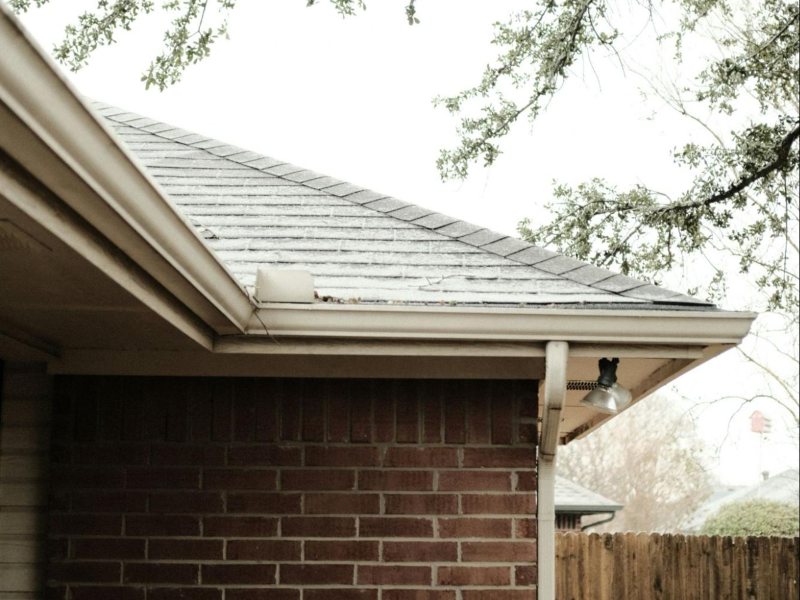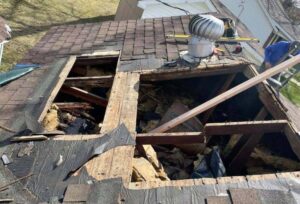A new roof is a significant investment, so ensuring it’s protected by a warranty is essential. Roof repair warranties are designed to provide peace of mind, covering specific issues that may arise after repairs or a new installation. However, understanding what these warranties cover—and why they matter—can be complex, as warranties vary by contractor, materials, and warranty type. This guide will walk you through the ins and outs of roof repair warranties, including what they typically cover, why they’re important, and factors to consider when choosing the best warranty for your roof.
Types of Roof Repair Warranties
There are several types of warranties related to roof repairs, each covering different aspects of your roof and its performance. The three primary types are:
- Manufacturer’s Warranty: This warranty covers defects in the roofing materials themselves, such as shingles or tiles. A manufacturer’s warranty often lasts for decades, depending on the material quality and type. While it’s reassuring, it doesn’t cover installation issues.
- Workmanship Warranty: Offered by the contractor or roofing company, this warranty covers the quality of the installation work. If a leak or problem occurs due to improper installation, the workmanship warranty will cover the repair costs. Workmanship warranties vary widely in length, from one year to the lifetime of the roof.
- Extended Warranty: Some manufacturers and contractors offer extended warranties, which cover additional years and may combine both material and workmanship protection. These warranties are often available at an extra cost and may include enhanced coverage or longer terms.
What Roof Repair Warranties Cover
The coverage offered by roof repair warranties depends on the type of warranty and the specific terms outlined by the manufacturer or contractor. Here’s a closer look at what’s typically covered:
- Material Defects: Manufacturer warranties generally cover defects in the materials, such as cracking, splitting, or premature wear. If shingles fail due to a manufacturing flaw, the warranty will typically cover the cost of replacing them.
- Installation Issues: A workmanship warranty protects you from issues related to improper installation, such as loose shingles, water intrusion, or poor alignment. If the roof fails due to installation errors, the contractor will be responsible for repairs under this warranty.
- Coverage of Leaks: Depending on the warranty, leaks may be covered if they’re a result of material defects or improper installation. Leaks caused by severe weather, debris, or structural issues unrelated to the roof repair may not be covered.
- Wind Damage: Some warranties may include protection against wind damage up to a certain speed, but this depends on the manufacturer and material type. High wind ratings may increase the warranty’s durability in certain areas but won’t typically cover hurricane-force winds.
- Transferable Options: Some warranties are transferable, meaning if you sell your home, the new owner will benefit from the warranty coverage. This is an attractive feature for buyers, adding value to your home.
What Roof Repair Warranties Don’t Cover
Understanding what warranties don’t cover is just as important as knowing what they do. Here are some common exclusions:
- Natural Disasters: Damage caused by hurricanes, tornadoes, hail, and other natural disasters often falls outside of standard warranty coverage. Instead, these events may be covered by your homeowner’s insurance policy.
- Maintenance Neglect: Warranties generally require regular roof maintenance, such as clearing debris, inspecting for damage, and cleaning gutters. Failure to keep up with maintenance can void your warranty.
- Improper Ventilation: Roofing systems rely on proper ventilation to prevent moisture buildup and mold. Issues related to poor ventilation often aren’t covered under warranties, as they’re considered a maintenance issue rather than a defect.
- Additions or Structural Changes: If you make additions to your home or alter its structure, it may affect your roof warranty. Be sure to check with the warranty provider if you’re planning any renovations.
- Ponding Water or Flat Roof Concerns: For flat roofs or low-slope roofs, warranties may not cover issues like ponding water unless special provisions are in place. Standing water can lead to leaks and roof deterioration over time.
Why Roof Repair Warranties Matter
Roof repair warranties are an essential part of protecting your investment. With the help of our friends at Skywalker Roofing, we have a list of benefits of why roof repair warranties are important:
- Financial Security: Roof repairs or replacements can be costly, and warranties protect you from unexpected expenses related to material or workmanship issues. Knowing you’re covered helps reduce financial risk.
- Peace of Mind: Warranties give homeowners confidence that their roof was installed with high-quality materials and expertise. Should issues arise, warranties provide reassurance that repairs will be handled promptly.
- Home Value Boost: A transferable warranty can add value to your home, making it more attractive to potential buyers. Buyers know they’re protected against potential issues with the roof, and they won’t have to budget for future repairs as quickly.
- Quality Assurance: Manufacturers and contractors that offer warranties are often confident in the quality of their products and workmanship. Choosing a company with a solid warranty can also give you insight into the reliability and professionalism of the contractor.
Factors to Consider When Choosing a Roof Repair Warranty
Selecting the right roof repair warranty involves evaluating several factors. Here’s what to keep in mind:
- Warranty Length: Longer warranties often provide better value, but keep in mind that longer coverage periods may come at an extra cost. Consider how long you plan to live in your home and whether you’re looking for long-term protection.
- Reputation of Contractor and Manufacturer: Not all warranties are created equal, and it’s crucial to choose a reputable contractor and manufacturer. Read reviews, check credentials, and ask for references before committing.
- Exclusions and Limitations: Review any warranty’s terms, conditions, and exclusions carefully. A low-cost warranty may have many limitations, while a slightly higher-priced option may offer comprehensive coverage that’s worth the investment.
- Maintenance Requirements: Warranties often have maintenance requirements, like regular inspections or cleaning, that must be fulfilled to keep coverage intact. Ensure you understand what’s required to avoid accidental voiding of the warranty.
- Transferability: If you’re considering selling your home within the warranty period, check if the warranty is transferable. Transferable warranties can be a valuable selling point for future buyers.
How to Protect Your Roof Warranty
Once you’ve secured a warranty, there are a few steps you can take to ensure it remains valid and effective:
- Document Everything: Keep all paperwork related to your roof repair or installation, including receipts, contracts, and the warranty document itself. Documentation can be invaluable if you need to make a claim.
- Schedule Regular Inspections: Many warranties require annual or biannual inspections to remain valid. Even if your warranty doesn’t require it, regular inspections can help catch small issues before they become major repairs.
- Perform Routine Maintenance: Clear debris, clean gutters, and inspect for damage after major storms. Staying on top of maintenance will ensure you meet the warranty’s terms.
- Work Only with Authorized Contractors: Some warranties require that repairs be performed by certified or authorized contractors. Check your warranty’s terms and conditions to avoid voiding it inadvertently.
Conclusion
Understanding roof repair warranties and what they cover can save you from unexpected expenses and provide long-term protection for your roof. By knowing the types of warranties available, the specifics of their coverage, and the exclusions, you can make informed decisions that best suit your needs and budget. Remember that a warranty isn’t just about coverage—it’s about quality, peace of mind, and protecting your home. So whether you’re repairing, replacing, or simply maintaining your roof, choosing the right warranty and working with a trusted contractor are key steps in safeguarding your home’s long-term value and durability.







